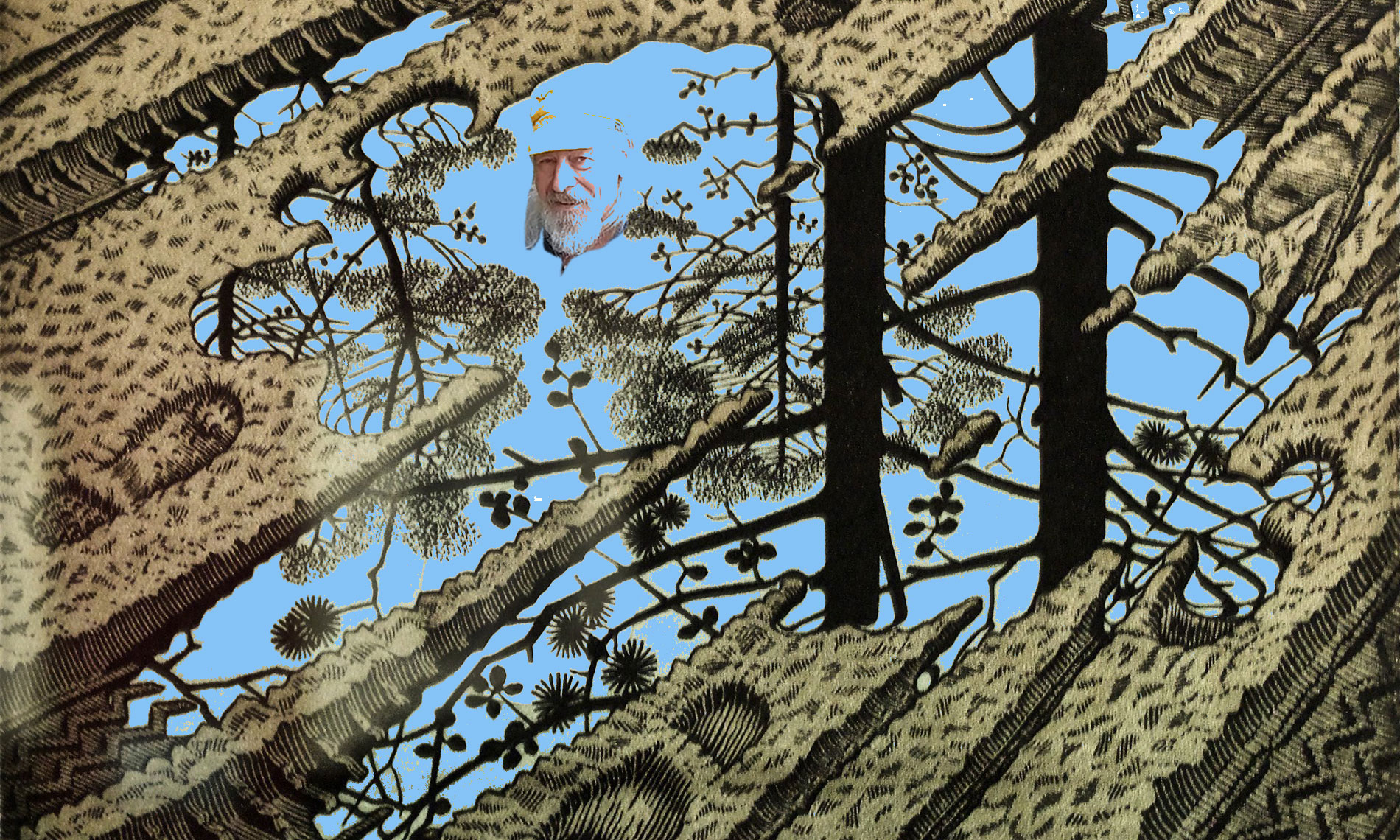
Some hear the voices within them with great clarity and obey what they hear. These people go crazy or become legends., Tahca Ushte said. Others make the difference between their inner voices. They only follow favourable advice. They see life, the truth, the way. Few people listen to them — no one hears them.
Loneliness
The solitude in which they live makes of the most beautiful sky a black tomb. They fall from grave to grave, they sink into the shadows; no help comes to them, no recourse withholds. Strength is their bark, the rest is weakness. Their milled sapwood filters a little light that night extinguish to harm them.
In the sun we rot faster. The light of this world is too dull to surround the pervasive shadow of a tight silver edging. When one of them goes out, a new star lights up. Around it waste and comets form the circle to the planets and deform a little more the plot of the drama of the soul: eternal, bitter, literal ether, austere coastline.
These mirror-warped aether verses see their infernal dream become the future. In the world so conceived without anyone knowing, some obscure leech will suck marrow and sap.
Disappointed heart
And billions of lives for millions of eons will be lost in the rubble. Cheer under the dark rays. Your heart disappointed will be number.
You are more closed than a trap. Do you have any desire to live? To love? To laugh? What do you want that can open you? Do you still want to read? To write? Do you want to hear yourself say: come on, nothing is lost! Which snake bit you? What torments are due to you? Do you want the rope of the hangman? May happiness be returned to you? Life comes to the living, you must hang yourself first.
When you have passed the heights of martyrdom, forget your dol. Enough yes but. Let stretch in you the energy serpentine. Here is the door at last, look! It opens in half at dawn. The day will rise on your hunger. René!=reborn You are reborn. Your death will take you from the land of the damned to the paradise of Aeneas.
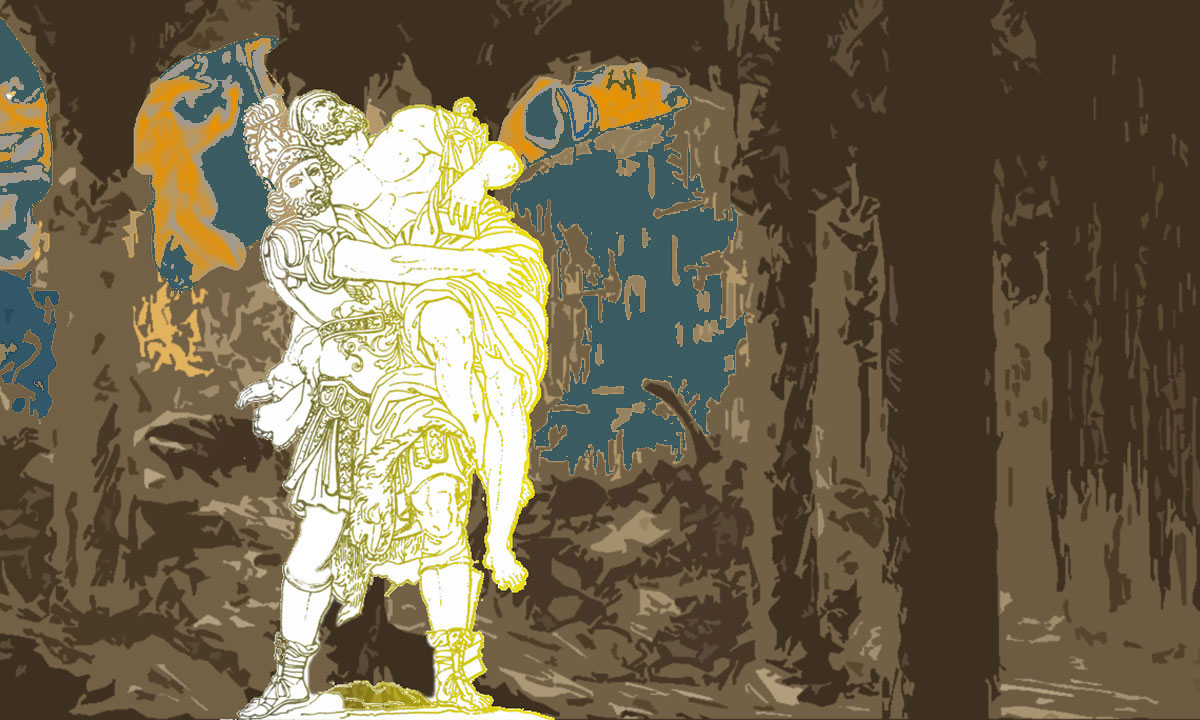
Aeneas, the son of human Anchise and goddess Aphrodite, is one of the heroes of the Trojan war. It is sung by Virgil in the Aeneid, of which he is the main character. Mythical founder of Lavinium which became Rome, he will be its first king.
Fools defeated
When it gets rough, you have to be rough. Facing error, terror.
As Aeneas carrying her poor father, I carry in the earth a vow born dead, to rise again. To emerge from the tomb to know a flight, an assumption. The angel came, his voice said to me: -You will be a man, my son!
His word was enough. My ordeal is over. The terror is healed. I have received energy. I have known Noémie. I have overcome madness. I have banished frenzy. The envy was eradicated. I went through the night that caused me so much trouble.
Three times born
Eneas is the son of Anchise, false brother of Cochise. Anchise is a human race before ours, he is a black giant 4m12. Beautiful as a former god, he seduced the sublime Aphrodite, which the Romans called Venus. From their union a son was born, Aeneas, their eldest son. Although born three times, he is now dead.
He was buried at the age of a thousand years in the city of Milan which will be built in a thousand years. The burial was half-quick, half-slow. Necessarily. He was laid bare as a giant worm. By economy, it is said. When one measures more than four meters, you can’t even imagine the price of a coffin. Three times born, four times dead.

Prehistoric megalopolis
The city is the beginning of the end. Black planetary civilization has perished from the decline of its megacities. In Africa, near Maputo, the ruins of a prehistoric city have been found. And very large. Maputo (formerly Lourenço Marques) is a large city in southern Africa and the capital of Mozambique.
Many other archaic ruins have been found throughout southern Africa. Real cities like Sumer, but much older. And we will discover them thanks to a famous guide, the sublime Venus Afro dite,ie Aphrodite which belongs to the superior race, that of the Former Goddesses.
Afro dite: under her Greek name, Venus is said to be African. Thus the language of the birds — namely language of the goslings — gives us the meaning and information that we lack to find our way in the jungle of the past, amply distorted by historians and their bias blessed by the secular and compulsory school : “Don’t think, dear students, only repeat what the teacher dictates to you.”
Please note that the language of the Goslings only works in French, an initiatory language just like Sanskrit and Hebrew.
4000 Years of sorrow
These very ancient goddesses had an extraordinary longevity, compared to the extreme brevity of our current lives. Or compared to the already strong longevity of the Greco-Latin gods. Several thousand years, these merry drills. And Venus lived all that time too.
All this is just rubbish next to Ana, the First. The Great Goddess Ana / Anna / Ama has lived for over four billion years until now — it’s not over yet. There is something to be amazed about, pathetic and panting. At the moment she sleeps. Of reptilian race, she needs a good dormancy every 60,000 years.
Oh not much! A little nap of only four thousand years — yes, the very time of Kali Yuga, the time without Her. During Kali Yug, the human being is quite uncomfortable. To the claws of the dark archons, he poops heavily. He drools. When the queen mouse is not there, the kitties dance. The demons are in trance.
The Unique is feminine. She was masculinized by the Patriarchs four thousand years ago. Before them, the matriarchy had lasted sixty thousand years. It leaves us only one chance: to capture. Open our subtle ears wide, feel, perceive, sense, catch what the Dream of the Great Goddess Ana sends us.
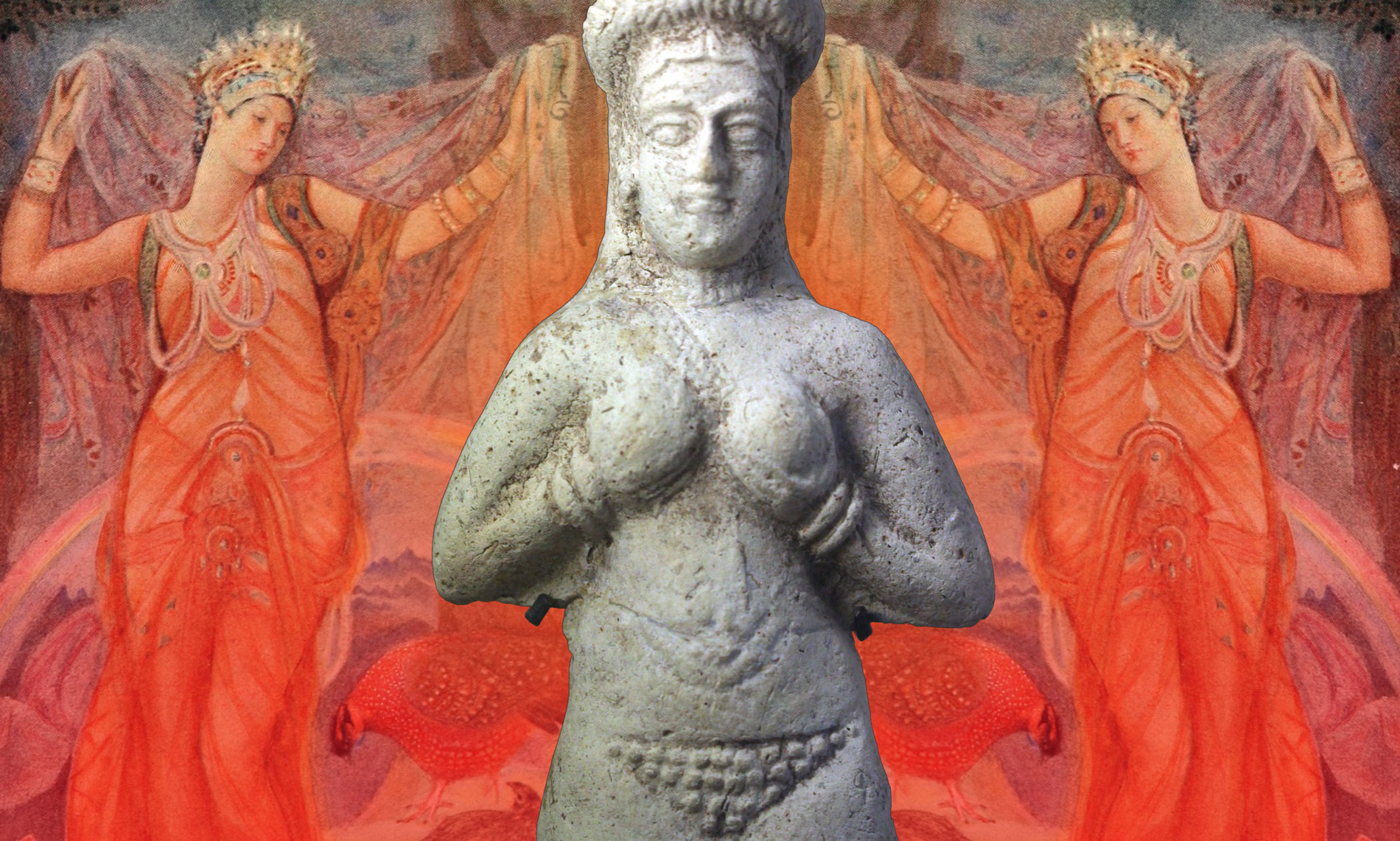
This dingy world of us
I came to the unclean on May 21, 1949. I will stop writing on May 21, 2049. You will have to support me for years, as your father has already done for 76 years. I belong to the tenacious race, the breakage race, the race that traces and does not pass its place.
Nor loose its turn. Always and without detour, I belong to the race of love. Without reason, without season, without condition, without surrender. Without mission, without fiction, without interruption. I write as I breathe, and even worse: if I breathed as I write, long ago I would have died of excessive hyperventilation.
Suffocated by too much air as I suffocate the fire of my wrath. Who is stirred up and overflowing. Now it’s over. Suffocated my wrath like a project in its infancy. Stewed like a newborn fetus. I improvise and it’s silly. Have to try it — no try, no gain.
*
* *
Daughter of hardhearingness, selective deafness is a very good way to read what is hidden. We distort what we hear, and the spark makes us understand. Blur the sounds, soil the tones, wet the backgrounds.
If it is said in another language, we find a sound equivalent in ours.
The language of the Goslings
The language of the birds, such is the pleasant name given to the clear audience or third ear. Deformation of words, to extract another meaning from the same sounds. Thus, when one hears badly, one understands better. Such is the clear audience. Extremes meet …
One may wonder what birds have to do with it. Say yes, for starters. Yes metalanguage is everywhere — yes, synchronicities abound — yes, hidden meanings are unmasked — yes, yes, yes… it’s so good to say yes.
First of all it is not just any bird. Gosling is a rather rare word, people will have misunderstood, hence the current name of language of birds. Sad decline.
The gosling is the young of the goose. Why the goose? In coded language, the building companions of cathedrals were called the children of Mother Goose = Les enfants de la Mère l’Oye — which also means, in Oison language, Les enfants de l’Amère Loi, children of bitter law.
The language of the Goslings loves puns, jokes, gauloiseries and so on, because the sacred feeds on it. La langue des Oisons is also called the art goth, or argot, ie slang. (source)
Be careful not to confuse la langue des Oisons and the language of the Origins. They have some similarities, but their difference is visible — if not audible …

Borobudur, Indonesia
Located in central Java, the site of Borobudur, built around the year 800, seems to have been abandoned around the year 1100. The temple is both a shrine dedicated to the Buddha, but also a place of Buddhist pilgrimage. It is both a stûpa and, seen from the sky, a mandala. It forms a square of about 113 meters side with, at each cardinal point, a protruding part accompanied at the four corners by a recessed part. (source)
BORO BUD UR is easily translated from the original language, here in its English version. Boro means suburb, borough. Bud means a bud but also a buddy. I take both. Borough Bud Ur = suburb of the bud of Ur, or suburb of the allies (friends…) of Ur.
We can thus understand that this site was built according to the directives of the Goddesses of Avant, for the inhabitants of java then considered as friends of Ur, living in a suburb of this planet.
But in the language of the Oisons, in its French version, the translation is not the same. Budur will translate as Bout d’Ur. Remember that Ur is the planet of origin of the Before Goddesses. On this planet Ur, there is a city called Boro, located at the edge of the water, like the city of Bordeaux in France. Waterfront. (source)
The Gothic art
The language of the Oisons is magical. In the past, it was also called the art goth,Fr argot or slang.
Some insightful authors have thought that there must be a close relationship between Gothic art and goetic art, or magical art. For us, Gothic art is only an orthographic distortion of the word argotic, whose assonance is perfect, according to the phonetic law that governs, in all languages and without taking into account the spelling, the traditional cabal.
“The cathedral is a work of art-goth or slang. Dictionaries define slang as “a language that is specific to all individuals who have an interest in communicating their thoughts without being understood by those around them”. So it is a spoken cabal. The argotiers, those who use this language, are hermetic descendants of the Argo-nauts, who rode the ship Argo, spoke the Argotic language — our green tongue — sailing to the wealthy shores of Colchos to conquer the famous Golden Fleece.” (Fulcanelli, The Mystery of the Cathedrals)
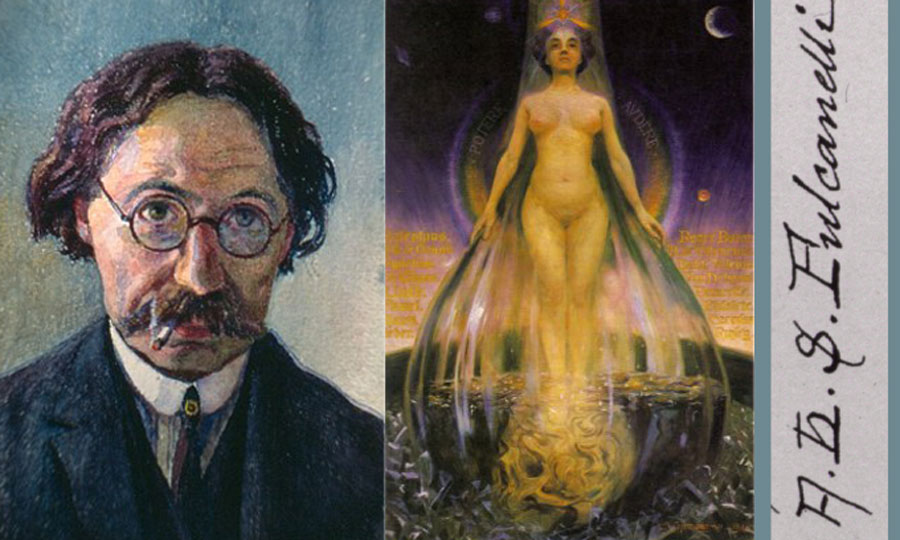
Who is Fulcanelli?
At the beginning of the last century, a mysterious initiate published two works of alchemy bearing as author’s name the pseudonym “Fulcanelli”. Who is behind it? Why?
Fulcanelli’s first book is entitled “The Mystery of the Cathedrals and the esoteric interpretation of the hermetic symbols of the Great Work” and the second “Les Demeures Philosophiques et le Symbolisme hermétique dans ses rapports avec l’art sacré et l’ésotérisme du Grand-Œuvre”.
These two books are in the public domain, having been published more than 70 years ago and the author being anonymous.
National Library of France
When we look at the legal deposit of these two books at BN, we find that:
Author: Fulcanelli (pseudonym of Jean Julien Champagne) Title: Fulcanelli. The mystery of cathedrals and the esoteric interpretation of the hermetic symbols of the Great Work. Preface by E. Canseliet, F. C. H. Illustrated book of 36 plates based on drawings by Julien Champagne [Printed text] Publication: Nogent-le-Rotrou, impr. P. Daupeley-Gouverneur; Paris, Jean Schemit, librarian, 52 rue Laffitte, 25 September 1926. In-8, 150 pp. [9444] Alternate author: Canseliet, Eugène (1899-1982). Preface writer.
Author: Fulcanelli (pseudonym of Jean Julien Champagne) Title: Fulcanelli. Les Demeures philosophales et le Symbolisme hermétique dans ses rapports avec l’art sacré et l’ésotérisme de la grande-oeuvre. Preface by Eugène Canseliet, F. C. H. Illustrated book of 40 plates, based on drawings by Julien Champagne [Printed text] Publication: Nogent-le-Rotrou, impr. P. Daupeley-Gouverneur; Paris, Jean Schemit, librarian, 22 November 1930. In-8, XI-351 pp. [1823]
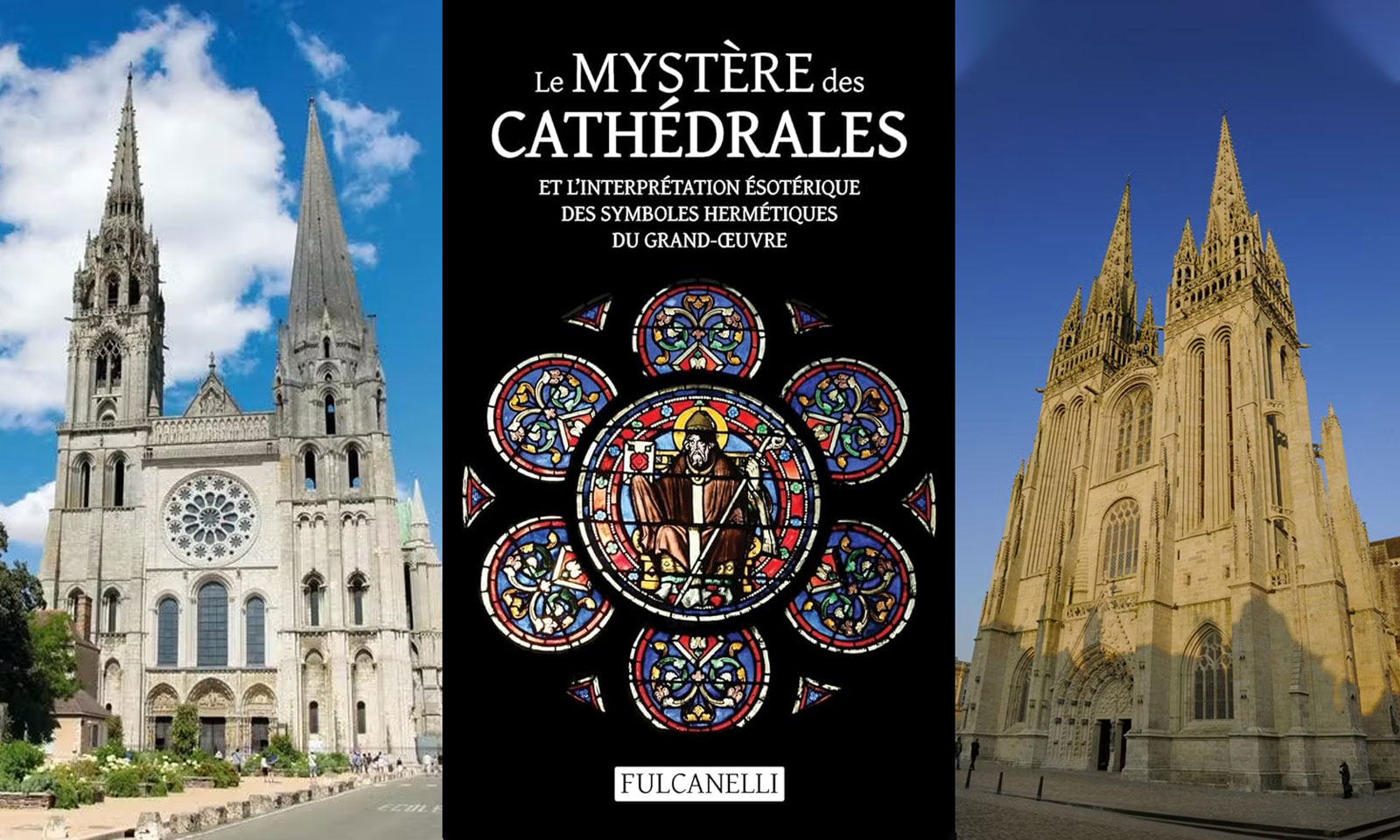
The mystery remains
If one wants to consult the original editions, one runs into the mention “Availability: absence observed (after recollection)” which means in plain language that the original works of Fulcanelli have been stolen.
In the Encyclopédie Universalis, we read: “Nothing is known of the author who signed “Fulcanelli”, but “Le Mystère des cathédrales” (Paris, 1926) and “Les Demeures philosophiques et le symbolisme hermétique dans ses rapports avec l’art sacré et l’ésotérisme de la grande œuvre.” (Paris, 1930), published between the two world wars, immediately imposed themselves to the attention of curious alchemists as well as art historians”.
For those who are interested in this mystery, here is my source. But I would like to warn you that nothing is clarified at the end of this thorough study…
Such a long way
We have made a long way thanks to the mad shaman! But in this site, it is never the goal that dominates, but the path we take to get there. Shortcuts or extensions, steps, extras, links, aliens, means, deans, beliefs and wanderings.
I’m crazy, I wander. Wandering is human. Error is hymen. Who writes that behind my back? Those who did not understand, call me, you win. To you, I confess. If impossible is not French, imbitable is undoubtedly.
Friend, to follow, forget your head. The slow brain is nothing like a kite. Cut off your head and use something else.
My advice: use the direct line, the one that passes through the stars.
Only the Dream path can give you better grain to grind. I’m going there tonight.

Of course, Bob Crumb has to come and fuck around. I’m discouraged.
Wizard Diary
- Crazy Shaman
- Acting Magic
- Tentacle and Allies
- First Master On Board
- The Earth Chakras
- Giving the Star
- What Frightens Me
- The Inner Child
- The Dawn of Nothingness
- The Irruption of the Irrational

- The Fire From Within
- The Body of Magic
- “Someone” Leads Me
- Ten Keys To Witchcraft
- The Angel And The Deva
- My Goal
- Sense Essence
- My Helpers
- Behind The Scenes
- My Goblins
- The Trap of Evidence
- Body Outings
- Night Flight
- Suspended Time
- Cat’s Eyes
- The Joyful Wisdom
- The Great Power
- Available
- Leave A Trace?
- The Wolf Clan
- Unexpectedly
- Demons And Wonders
- The Ultimate Victory
- Mage, Enchanter, Wizard
- Global Awakening
- Beyond Appearance
- Good Will
- Eden Saga in danger


